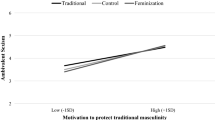Abstract
In his work El scholástico Cristóbal de Villalón proposes the construction of a new model of a citizen able to fulfill the demands of the centralized State in the political frame of the Spanish Empire. In this literary text the author echoes the struggles of the humanists who linked up with an emerging bourgeoisie in an attempt to impose new forms of thinking and behavior in order to give rise to an autonomous male subject of civility. Through the creation of an ideology of male conduct based mainly on the principle of self-control, the author deviates from Castiglion's Il cortesano, which is more concerned with defending a specific aristocratic lifestyle. At the same time the ideology emanates from El scholástico denotes the crisis of male identity suffered by the members of the bourgeoisie, who were obliged to negotiate a position of authority in a society still dominated by the Church and the Nobility. It is the work's humanist orientation that is responsible for offering to the male citizen a model of self-fashioning that promulgates control over their own bodies and discourses. It is not surprising that this ideology of control matches the political agenda of the new centralized State perfectly.
Similar content being viewed by others
Obras citadas
Abellán, José Luis. El erasmismo español: una historia de la otra España. Madrid: Espejo, 1976.
Bataillon, Marcel. Erasmo y España: estudios sobre la historia espiritual del siglo XVI. 1937. Trad. A. Alatorre. México: Fondo de Cultura económica, 1966.
Brittan, Arthur. Masculinity and Power. Oxford: Basil Blackwell, 1989.
Cascardi, Anthony J. Ideologies of History in the Spanish Golden Age. University Park: Pennsylvania State UP, 1997.
Castiglione, Baldassare de. Il cortegiano. Trad. Juan Boscán. Madrid: Cátedra, 1994.
Correll, Barbara. “Malleable Material: Models of Power: Woman in Erasmus's ‘Marriage Group’ and Civility in Boys.” ELH 57 (1990): 241–262.
Correll, Barbara. The End of Conduct: Grobianus and the Renaissance Text of the Subject. Ithaca: Cornell UP, 1996.
Di Camillo, Ottavio. El Humanismo castellano del siglo XV. Valencia: Torres, 1976.
Di Stefano, Christine. Configurations of Masculinity: A Feminist Perspective on Modern Political Theory. Ithaca: Cornell UP, 1991.
Elias, Norbert. Power and Civility. Trad. Edmund Jephcott. New York: Pantheon, 1982.
Ferguson, Margaret. “A Room Not their Own: Renaissance Women and Readers and Writers.” The Comparative Perspective on Literature. Ed. Clayton Koelb and Susan Noakes. Ithaca: Cornell UP, 1988, 93–116.
Ferreras-Savoye, Jacqueline. Les dialogues espagnols du XVI siècle ou l'expression littéraire d'une nouvelle conscience. 2 vols. Paris: Didier, 1985.
Foucault, Michel. Discipline and Punish: The Birth of the Prison. Trad.Alan Sheridan. New York: Pantheon, 1977.
Foucault, Michel. “The Subject and Power.” Critical Inquiry 4 (1982): 777–795.
Garin, Eugenio. La revolución cultural del Renacimiento. Barcelona: Crítica, 1981.
Gilmore, David D. Manhood in the Making: Cultural Concepts of Masculinity. New Haven: Yale UP, 1990.
Gilson, Etienne. Humanisme et Renaissance. Paris: Vrain, 1986.
Greenblatt, Stephen. Renaissance Self-Fashioning: From Moore to Shakespeare. Chicago: U of Chicago P, 1980.
Guevara, Antonio de. Libro primero de las epístolas familiares. Ed. J. M. de Cossío. Vol 2. Madrid: RAE, 1952.
Guevara, Antonio de. Menosprecio de Corte y alabanza de aldea. Madrid: Cátedra, 1984.
Hamilton, Rita. “Villalón et Castiglione.” Bulletin Hispanique 4 (1952): 200–202.
Javitch, Daniel. Poetry and Courtliness in Renaissance England. Princeton: Princeton UP, 1978.
Kaufman, Michael. “The Construction of Masculinity and the Triad's of Men's Violence.” Beyond Patriarchy: Essays by Men on Pleasure, Power and Violence. Ed. Michael Kaufman. Toronto: Oxford UP, 1987, 1–29.
Kristeller, Paul Oscar. Studies in Renaissance Thought and Letters. Roma: Edizioni di Storia e Letteratura, 1969.
Kutcha, David. “Semiotics of Masculinity in Renaissance England.” Sexuality and Gender in Early Modern Europe: Institutions, Texts, Images. Ed. James Gratham Turner. Cambridge: Cambridge UP, 1993, 233–246.
Maravall, José Antonio. Carlos V y el pensamiento político del Renacimiento. Madrid: Instituto de estudios políticos, 1960.
Maravall, José Antonio. Poder, honor y élites en el siglo XVII. Madrid: Siglo XXI, 1979.
Marshall, Pauline, ed. El caballero perfecto. De Alonso Gerónimo de Salas Barbadillo. Boulder: U of Colorado P, 1949.
Martínez Torrejón, José Miguel. Prólogo. El scholástico. De Cristóbal de Villalón. Barcelona: Crítica, 1997, ix–lv.
Miller, Tobias. The Well-Tempered Self: Citizenship, Culture and the Postmodern Subject. Baltimore: Johns Hopkins UP, 1993.
Navarrete, Ignacio. “The Spanish Appropriation of Castiglione.” Comparative and General Literature 39 (1990-91): 35–46.
Prieto, Antonio. La prosa española del siglo XVI. Madrid: Cátedra, 1986.
Rallo, Asunción. Antonio de Guevara en su concepto renacentista. Madrid: Cupsa, 1979.
Rallo, Asunción. Introducción. El crótalon. De Cristobal de Villalón. Madrid: Cátedra, 1982, 13–80.
Rico, Francisco. El sueño del humanismo: De Petrarca a Erasmo. Madrid: Alianza Universitaria, 1993.
Roche, Daniel. The Culture of Clothing: Dress and Fashion in the ‘Ancien Regime.’ Trad. Jean Birrell. Cambridge: Cambridge UP, 1994.
Rodríguez, Juan Carlos. Teoría e historia de la producción ideológica: Las primeras literaturas burguesas. Madrid: Akal, 1990.
Seidler, Victor. Rediscovering Masculinity: Reason, Language and Sexuality. New York: Routledge, 1989.
Villalón, Cristobal de. El scholástico. Ed. José Miguel Martínez Torrejón. Barcelona: Crítica, 1997.
Villalón, Cristobal de. El crótalon. Ed. Asunción Rallo. Madrid: Cátedra, 1982.
Ynduráin, Domingo. Humanismo y Renacimiento en España. Madrid: Cátedra, 1994.
Zapata, Luis. Varia historia: (Miscelánea). Ed. Gertruisa Horsman. Amsterdam: Becht, 1935.
Author information
Authors and Affiliations
Rights and permissions
About this article
Cite this article
Martínez-Góngora, M. El discurso humanista de educación masculína: Formas de autocontrol en El scholástico de Cristóbal de Villalón. Neophilologus 85, 203–223 (2001). https://doi.org/10.1023/A:1004844905174
Issue Date:
DOI: https://doi.org/10.1023/A:1004844905174




